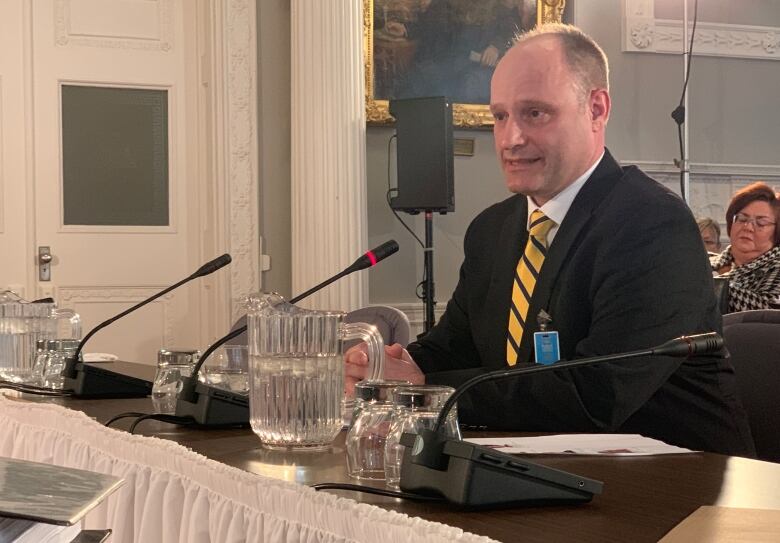Change to government bill creates division between doctors and nurses
Nursing Act would see the merger of two colleges into a single regulatory body

A single change in a government bill that's otherwise received universal support has created a disagreement between doctors and nurses.
The Nursing Act is intended to create a merger of the College of Licensed Practical Nurses of Nova Scotia and College of Registered Nurses of Nova Scotia.
Among other things, the billcreates a single regulatory body for the profession and allows for more prompt flexibility in dealing with changes to scopes of practice.
But it's what's not in the bill that caught the attention of Doctors Nova Scotia. The new act removes the requirement for nurse practitioners to have a formal relationship with a doctor before they are allowed to practise.
Appearing at the legislature's law amendments committee on Monday on behalf of Doctors Nova Scotia, Dr. Mike Wadden said the organization supports the merger of the colleges and nurse practitioners working to their full scope, but the organization isconcerned the change creates a safety risk.

"We are not advocating for physician oversight on nurse practitioners or limitation on their scope of practice," he said.
Wadden said removing the legislated requirement for formal collaboration raises concerns about potential problems when transition of care is needed. He said itremoves what had been a clear path for everyone to follow when they had questions about a patient.
"I'm not quite sure how that pathway happens [with the new act]," Wadden told reporters after his appearance.
"How does the NP contact a family physician? What family physician does that NP contact?"
'There's no need of it'
But Janet Hazelton, the president of the Nova Scotia Nurses' Union, said collaboration is required for all health-care workers, yet it's only nurse practitioners who have had the requirement of a formal agreement with a doctor before they could work.
Hazelton believes it was a check put in place when the profession was first introduced in the province. But in recent years, the number of nurse practitioners has grown from 30 to 200 and they've become an important part of the system, she said.
If anything, said Hazelton, the requirement has been a barrier to providing care, particularly in remote and rural areas where it's sometimes difficult to attract or keep doctors.
"If the physician leaves, then what happens to our nurse practitioner? There's no need of it, there's absolutely no need of that in the legislation," she said.
"Nurse practitioners are educated and they know when and if they should collaborate."
Hazelton said the provision implied nurse practitioners don't collaborate and that's not the case.












_(720p).jpg)


 OFFICIAL HD MUSIC VIDEO.jpg)
.jpg)



























































































